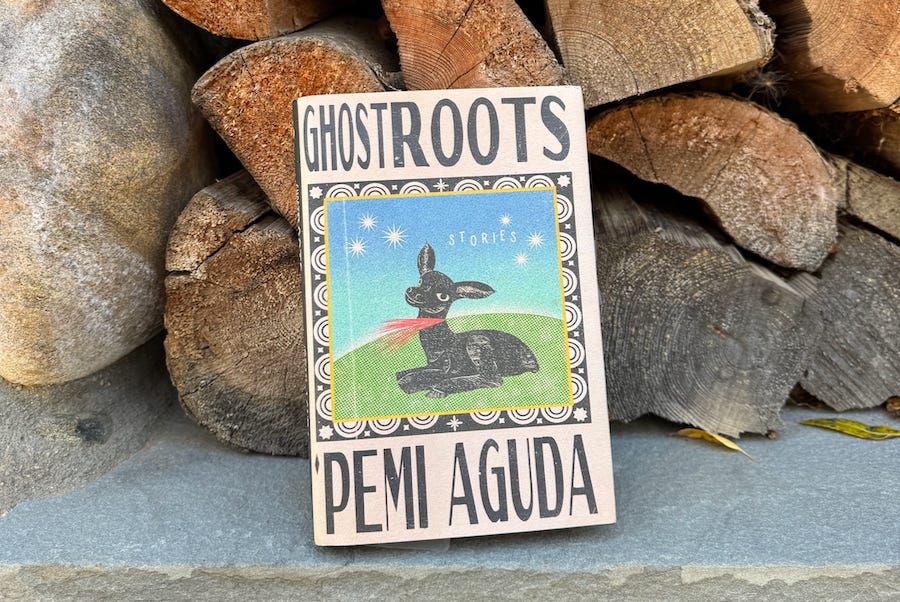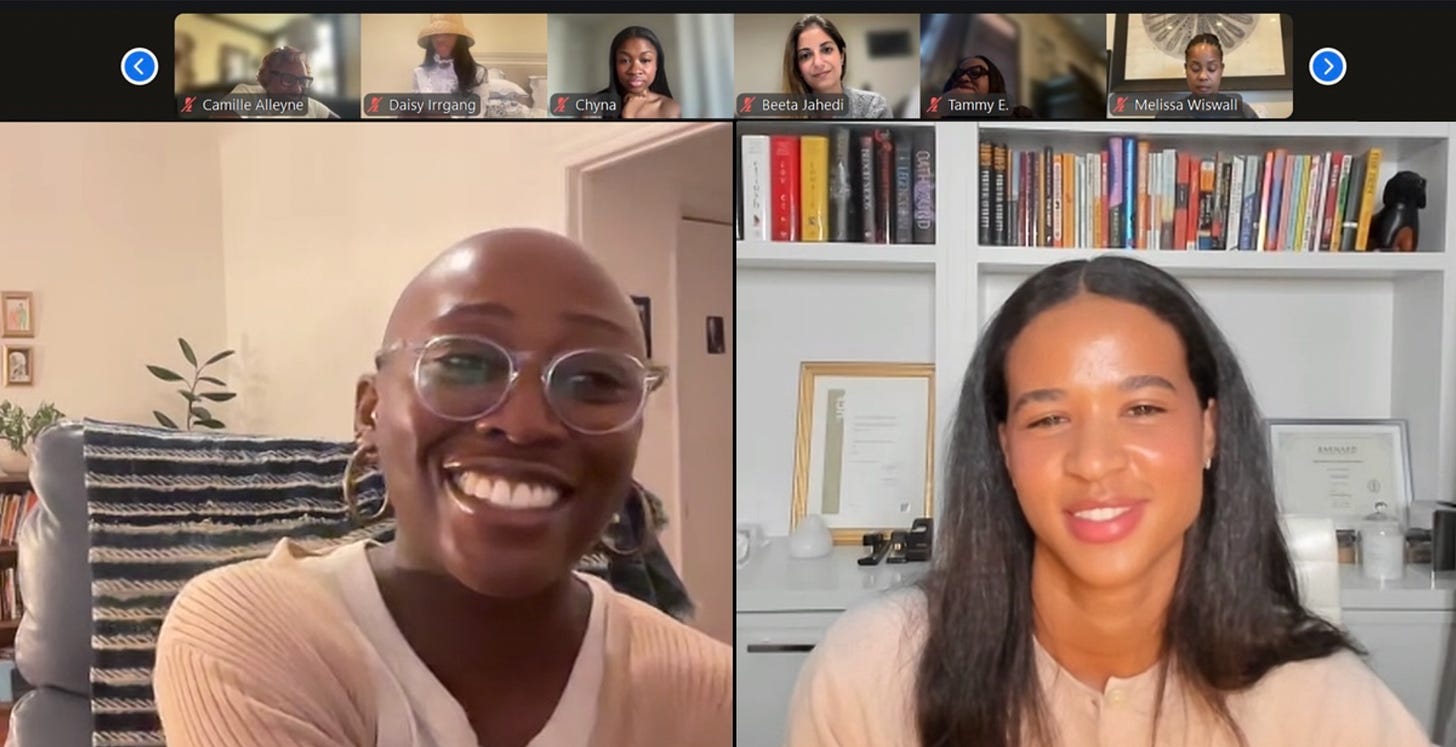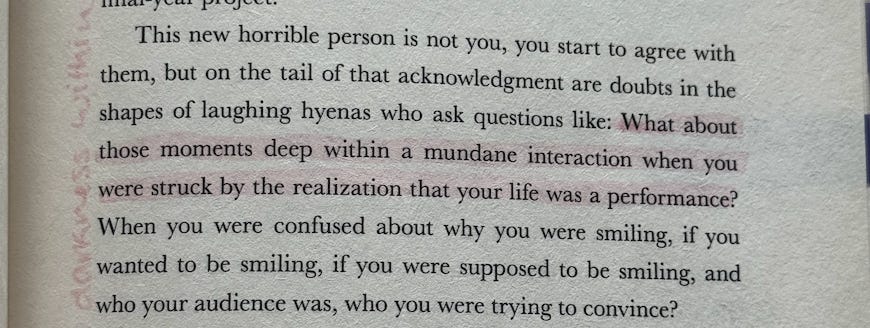A Virtual Event with Author Pemi Aguda
For October, Dwelle Literature read Ghostroots by Pemi Aguda.
This month was also our first-ever virtual event! We hosted author Pemi Aguda for a live discussion of her debut collection. We talked about her writing process, where she gets inspiration, and the importance of setting her stories in Lagos. Here are some more highlights from the evening.
Ghostroots is a collection of 12 short stories, all set in Lagos, and all exploring mundane subjects through an uncanny lens. In “Breastmilk,” a woman is convinced that her body’s inability to produce breastmilk for her child is tied to her husband’s infidelity, in “The Hollow,” a house shape shifts to protect women and children from domestic abuse, and in “24, Alhaji Williams Street,” a mysterious illness is killing all the young boys in one neighborhood. The stories are strange and unsettling, not just because of the supernatural elements, but because of how introspective they make you feel. While reading these, I questioned how original my life experiences are or if there are parts of me that are directly reflective of my ancestry.

One of my favorite stories, and the universal favorite of my book club members, was “Manifest,” the first story in the collection.
“Manifest” is about a twenty-six-year-old woman in Lagos whose mother is convinced that the spirit of her own mother, Agnes, has taken over her daughter’s body. We learn that Agnes was an “evil” and “wicked” woman, who tortured her family until she passed away at twenty-six years old. Our protagonist’s mother is sure that Agnes has reincarnated through her daughter’s body, and a violent streak is inevitable.
Our protagonist does start to commit crimes; it begins with “accidentally” killing her friend’s dog, and then things get worse. The pungent question throughout the story is whether Agnes has taken over her body or if her decisions are her own.
Our protagonist tries to learn more about the elusive Agnes, but none of her family members will talk about her. Her aunt says, “Let the past stay there, abeg. There are stories we leave buried so our children can move without weight” (11).
This interpretation of generational trauma is captivating because it plays with the idea of agency. Many of us of African descent wish that we had access to archives of our history and lineage, but in this story, the family history is known but consciously not shared. The withholding of information is seen as a form of protection, but that same withholding pushes our protagonist further into madness.
When we asked Pemi about her inspiration for this story, she mentioned that the idea came from a moment with her own mother, when Pemi made a facial expression that her mother said was identical to her grandmother's. Pemi wanted to explore the traits, physical and habitual, passed down through generations, questioning how much of ourselves are truly ourselves.

We had a similar conversation about “The Hollow,” a story that begins with a young female architect trying to understand why the dimensions of a home don't add up. She then uncovers the story of this house. It’s not just a home but a space that has a history of protecting women and children from domestic violence.
In alternating chapters with the young architect, we are also told the original story of the first woman to build the house. She runs away in the night with her son, confident her abusive husband will not find them, but he does. He scales every obstacle to get into the house, but once inside, the house contorts itself in so many ways that he never finds his prey.
We learned on the call that Pemi has a background in architecture and studied the interiors and exteriors of homes while at university. When asked about her inspiration for “The Hollow” and her consideration of physical spaces, she beautifully responded that she sees architecture and fiction-writing similarly. Both artistic forms are dependent on precise structuring and craft. And the actual framing of a home, or a story, can deeply affect an inhabitant and a reader.
She left us with the striking thought that houses take from us as much as we take from them, absorbing our energy and whatever else lies inside.
Ghostroots is truly a one-of-a-kind collection that seamlessly and hauntingly challenges our preconceived notions of lineage and the body. Being able to talk with Pemi was such an honor, and we are anxious for her upcoming novel, One Leg On Earth, coming out in May 2026!

